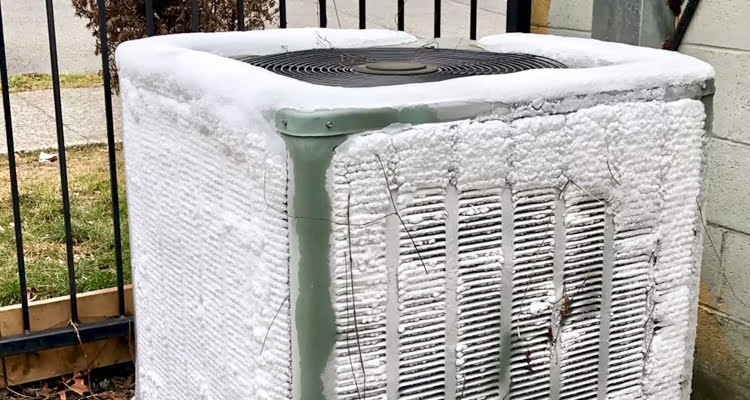
The steadily rising temperatures are proof that Vancouver is about to come face to face with some of the hottest days of the year. Although the hot season lasts barely three months in Vancouver, the heat in certain months become somewhat uncomfortable for its residents. For people who are usually accustomed to mild temperatures year-round, July is the most challenging time of the year.
When thermometer readings shoot up to about 23°C in July, Vancouver residents are often left breathless. At such times, their only source of solace, comfort, and contentment is a properly functioning air conditioner.
The feeling of gradually sipping a fruit shake in the comfort of a perfectly cooled room while watching the birds outside excitedly chirp and jump from tree to tree is incomparable. As enjoyable as it sounds, the usual AC hiccups and sudden pauses often ruin this summertime vibe. How can you enjoy watching the birds when you feel like you are melting in your chair?
As Vancouver’s most seasoned HVAC contractors, we understand your discomfort and feel your pain better than anyone else. As a result, we shall devote our attention today to one of the most common yet bizarre occurrences in summer – the freezing up of an AC. Yes, as strange as it sounds, an air conditioner can freeze up in the summer. For those who believe this phenomenon is bizarre, you might be surprised to learn that this is actually a common problem in almost every Canadian household.
For the purpose of this blog post, we shall explore the reasons behind why your AC may freeze up in summer and how you can prevent or correct the issue.
Thermostat Settings
Never let the heat overwhelm you and override your better judgment. When the temperatures shoot up, do not be in a hurry to set your thermostat at the lowest temperature and then forget about it. Instead, take the time to let your body adapt to the new temperature and then slightly change your thermostat settings.
Leaving your thermostat at a very low temperature setting can result in the freezing of your ACs coils. Thus, only place your thermostat at a low level when there is a heat wave, or the humidity is unbearably high.
Refrigerant Leakage
Refrigerant leaks are one of the biggest AC problems in summer. These usually pave the way for several other costly issues. A refrigerant is an expensive chemical element often found in appliances like ACs and refrigerators and is usually very difficult to replace.
A refrigerant leak is often the primary culprit behind an inefficient and poorly-performing air conditioner. This leakage often causes the AC to lose its strength and pressure, which results in the nearby water vapour solidifying into ice. In order to avoid a chain of costly repairs and replacements, consider requesting reliable Air conditioning repair services as soon as you suspect a refrigerant leak.
Faulty Fan
The best way to identify a faulty or malfunctioning blower fan is to be alert to any strange rattling noises. Similarly, a slower propelling or no movement at all clearly signifies a damaged blower fan. In turn, this faulty fan restricts proper air flow which results in condensation and ultimately the freezing up of an AC. If your blower fan is damaged, get it fixed immediately.
Damaged Ductwork
Damaged ductwork also results in poor airflow, which eventually translates into a frozen AC. As apparent from the discussion thus far, no AC issue occurs independently. Oftentimes, one issue invites a chain of others. We understand that it is difficult for an average homeowner with limited technical knowledge to watch out for all these issues.
In our opinion, the best solution at your disposal is to request regular air conditioner maintenance and inspections to detect and eradicate these issues in their initial phases.
Read Also: Benefits Of Routine Air Conditioner Maintenance
Blocked Air Filters
From the discussion, you must have noticed that poor airflow is often the main culprit behind a frozen AC. Clogged or dirty filters also result in an inadequate air flow which causes the water around the AC coils to freeze. In order to avoid this, you must clean your filters regularly and replace them every 90 days to ensure optimum performance.
Read Also: Why Should You Keep Your HVAC Filters Clean?
Loose Or Blocked Drainage Lines
Filters are not the only components that undergo a blockage due to dirt buildup. Drainage lines face a similar issue. When this happens, the dirt disrupts the water flow, which results in the overflow of the drip tray due to excess water. The overflowing water then freezes when it comes into contact with the cold coils. A similar situation occurs when the condensate drainage lines have a leakage.
About Pro West Heating And Air
We are a Vancouver-based Heating & Air Conditioning company. Our expertise lies in the repair, installation, and maintenance of air conditioning, heating, hydronic, and humidifier systems. Learn more about Pro West Heating & Air.
Contact us today for the best services.